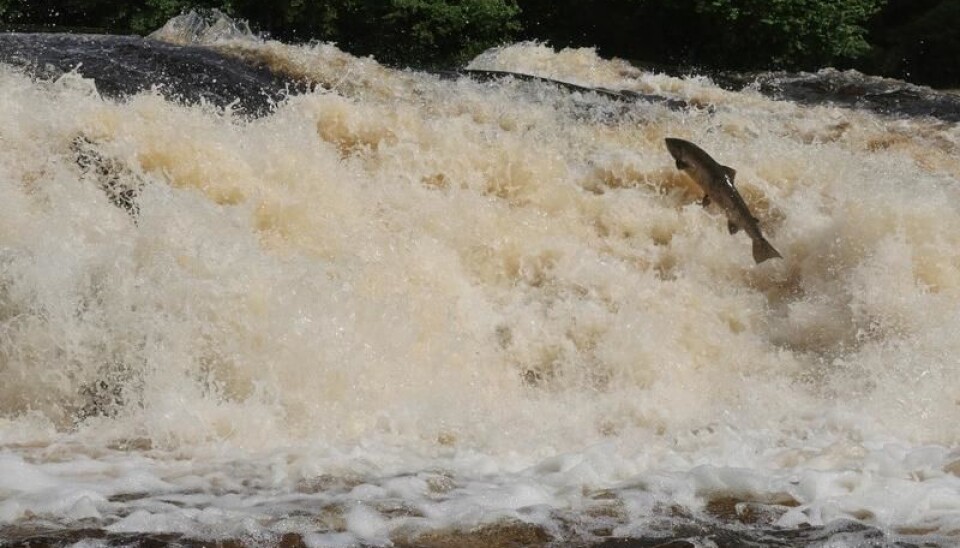
Happy salmon swim further
Some salmon are nervous nellies and apprehensive about swimming far out to sea, but not so if they can get a boost from anti-anxiety drugs.
After being born in fresh water streams and rivers salmon migrate out into the ocean to grow big and strong. Many swim thousands of kilometres, but not all.
Researchers at Sweden’s Umeå University think that anxiety or fear might be hampering some juvenile salmon (smolts) from migrating quickly downstream and venturing so far out to sea as their peers. Timid hatchery-reared smolts are more at risk of being eaten by predators when they don’t follow normal migration patterns and this is having a negative effect on wild salmon stocks.
“By exposing salmon to anxiety supressing drugs we could see salmon swimming further and faster than unexposed salmon,” said Gustav Hellström, one of the researchers behind the study, in a press release from Umeå University.
Twice as fast
The study was carried out in a controlled environment, a fish hatchery outside of Umeå in the north of Sweden.
Half of the fish were given doses of the drug oxazepam, which is prescribed for patients in treatment of anxiety disorders. The other half received no treatment.
In both controlled and natural environments the salmon with reduced anxiety swam nearly twice as fast as their untreated brothers and sisters.
This effect diminished with time as the medication levels fell in the salmon bloodstreams and muscle tissue.
Two earlier studies have shown that anxiety suppressing medications have an effect on fish. Researchers think that an increase in migration behaviour might relate to lower levels of the anxiety which otherwise would make the salmon less willing to take risks.
Traces of anti-anxiety drugs taken by the human population get flushed down toilets and end up in watercourses. The concentrations of the levels of the drug in the water of the tested salmon were similar to contaminant amounts that can be found in wastewater.
An anxious creature
Salmon are naturally nervous. Many predators are ready to eat them and they are dependent on hideouts in rivers to avoid them, explains Torbjørn Forseth, a senior research at the Norwegian Institute for Nature Research (NINA).
“One can easily describe salmon as anxious creatures. We know that the largest salmon rarely swim up the smaller watercourses, probably because there are fewer hideouts for them there,” says Forseth.
The smolts that migrate into the ocean have jolly good reason to be anxious. On their way they can encounter scores of different potential enemies and few survive the dangerous journey.
“Less than five percent survive and it can be as few as less than one percent,” said the late Ove Silber of the Norwegian Institute of Marine Research to Science Nordic’s Norwegian partner last year.
Torbjørn Forseth at NINA says that smolts usually swim at night, in part because darkness provides some protection against predators. He thinks it logical that fish with a supressed anxiety reaction would take larger chances than ones with normal levels of anxiety.
--------------------------------------
Read the Norwegian version of this article at forskning.no
Translated by: Glenn Ostling







